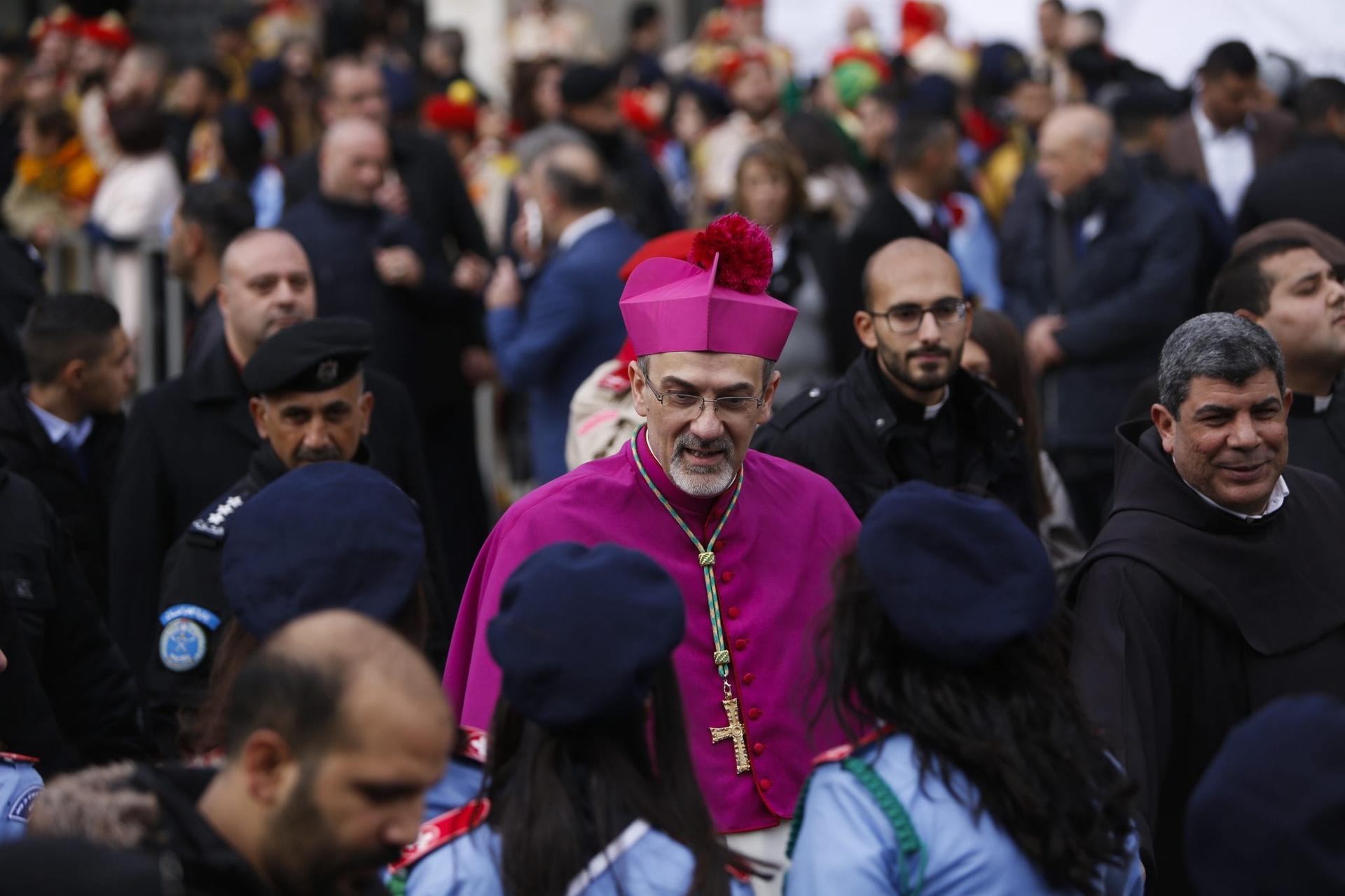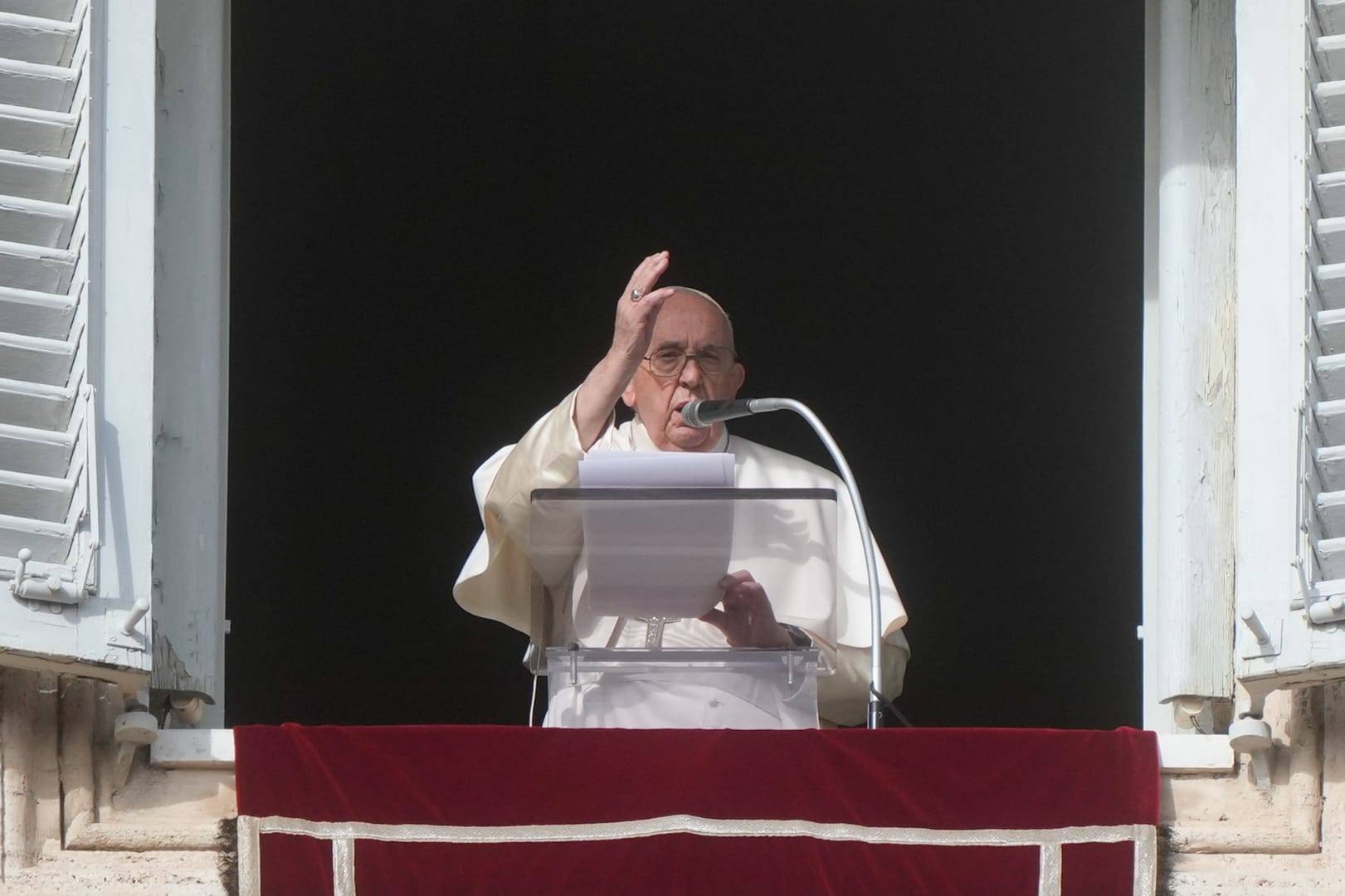ROME – While the controversial transfer of the U.S. embassy in Israel to Jerusalem may have triggered a political and diplomatic hurricane, the top Catholic in the Holy Land says that in terms of daily life in the holy city, it’s been little more than a soft spring rain.
“In terms of the practical details of ordinary life, not much has changed,” said Archbishop Pierbattista Pizzaballa, the Apostolic Administrator of Jerusalem.
“Jerusalem is traditionally a meeting point and a bridge for dialogue between Israelis and Palestinians, and now all that is gone, which is probably the most dramatic effect [of the move],” he said.
“But I repeat, that’s in terms of the political situation,” he said. “At the level of daily life, things are basically unchanged.”
Pizzaballa, an Italian cleric and member of the Franciscan Custody of the Holy Land, spoke in Rome on Saturday. He was appointed to his present role by Pope Francis in 2016.
Pizzaballa was speaking at a June 9 event held at Rome’s Opus Dei-sponsored Santa Croce (Holy Cross) University and organized by a group dedicated to helping Christians in the Holy Land.
It’s certainly not that Pizzaballa is blind to the human toll of the anger and hopelessness the decision has spawned in some quarters.
“Once again, the lives of many young people are being snuffed out and hundreds of families are crying over their dead,” he said, in a statement shortly after the embassy move happened. “One more time, in a sort of vicious circle, we find ourselves denouncing every form of violence, every cynical use of human life and disproportionate violence.”
On Saturday, he was more direct in terms of the political results of the move, saying both it and the response it generated demonstrated that the model of a peace process embodied in the 1993 Oslo Accords between then-Palestinian leader Yasser Arafat and both then-Israeli Prime Minister Yitzhak Rabin and then-Israeli Foreign Minister Shimon Peres, all of whom would receive the 1994 Nobel Peace Prize, was over.
The deal was worked out under the sponsorship of the U.S. President Bill Clinton and his team at the State Department, led by then-Secretary Warren Christopher. At the time, it was hailed as a watershed compromise in which the Palestinians would receive sovereignty over most of the land they claimed, while Israel would get security guarantees.
Asked if the idea of a two-state solution to the Israeli/Palestinian conflict is now “impossible,” Piazzaballa said “it remains the ideal.”
“Obviously, dialogue is essential because the current situation cannot stand,” he said. “But right now, it’s hard to anticipate the what, how and when [of a new peace process], because now the parties are not only not dialoguing, there’s no will to dialogue.”
Pizzaballa also commented on long-running efforts to reach agreement between the Vatican and Israel on the legal and tax status of Church properties in the country, pursuant to a 1993 Fundamental Agreement between the two sides.
Ever since, a bilateral working commission has been attempting to work out a deal.
“At the moment, the churches are living in a sort of limbo,” he said.
“We’re still living under Ottoman law, but obviously the situation has changed since then,” he said. “What we need is full citizenship from a legal point of view.”
Pizzaballa said that a controversy earlier this year in which the storied Church of the Holy Sepulchre, where Christian tradition holds Christ was buried, was shut down during an attempted tax collection push by the Jerusalem Municipality, was a “flash point” illustrating the need for an agreement.
“It’s not that the churches don’t want to pay taxes,” he said. “But it must happen under the law, not through unilateral edicts of municipal governments. We have to define an agreed-upon, rational process, to create a way for the Church to live.”
He added that the Israeli government under Prime Minister Benjamin Netanyahu created a commission to study the dispute, and, while he wouldn’t be drawn into speculating about when it might wrap up – “we’re in Biblical time,” he joked – he said he feels at least now, “we can talk in a rational way.”
The leader of the Latin Rite Catholic community in Jerusalem also said that while he isn’t ready quite yet to declare that ecumenical relations among the various branches of Christianity present in the Holy Land are experiencing a “golden age,” he insisted that recent developments have been “very good.”
“When it comes to the Orthodox, 30 years ago people would have said [working together] is impossible, but now we do it all the time,” Pizzaballa said, calling that a “radical and positive change.”
“Facing the dramatic changes in the Middle East generally, it’s clear it’s forced all of us to realize we have to work together,” he said.
“It all goes slowly, because leaders have to move with one’s whole people, but it all has a very clear aim now of participation and communion … We have not yet found liturgical peace, but what’s happened is still very positive,” Piazzaballa said.
Finally, the Franciscan archbishop expressed confidence that the Christian presence in the land where Christ lived and died isn’t about to die out.
“The numbers are worrying,” he said, while vowing despite it all, Christians “are not a species headed for extinction.”
Among signs of hope, he cited the active social role played by Church-sponsored schools and hospitals, as well as a more than 50 percent increase in Christian pilgrimages in recent years.
















